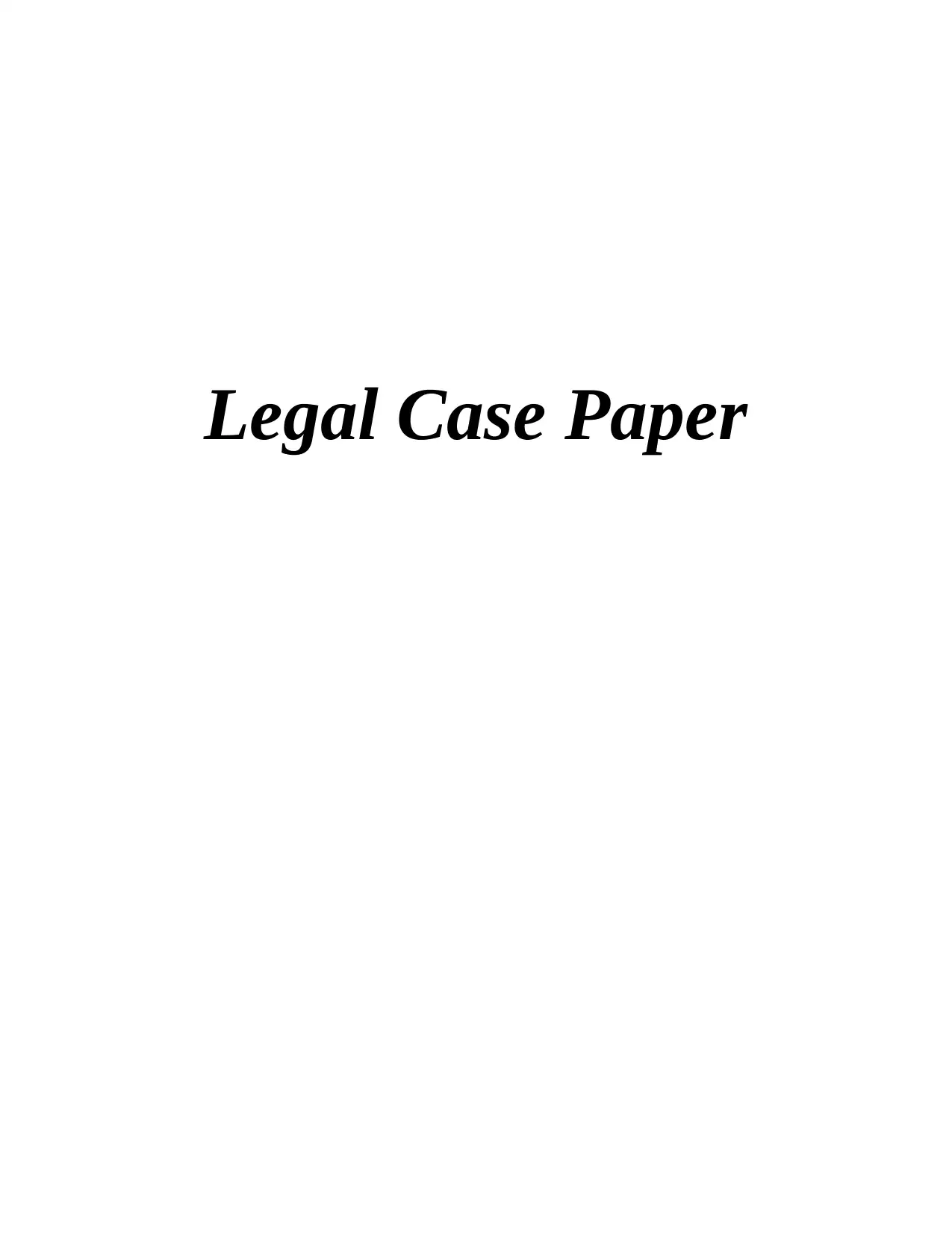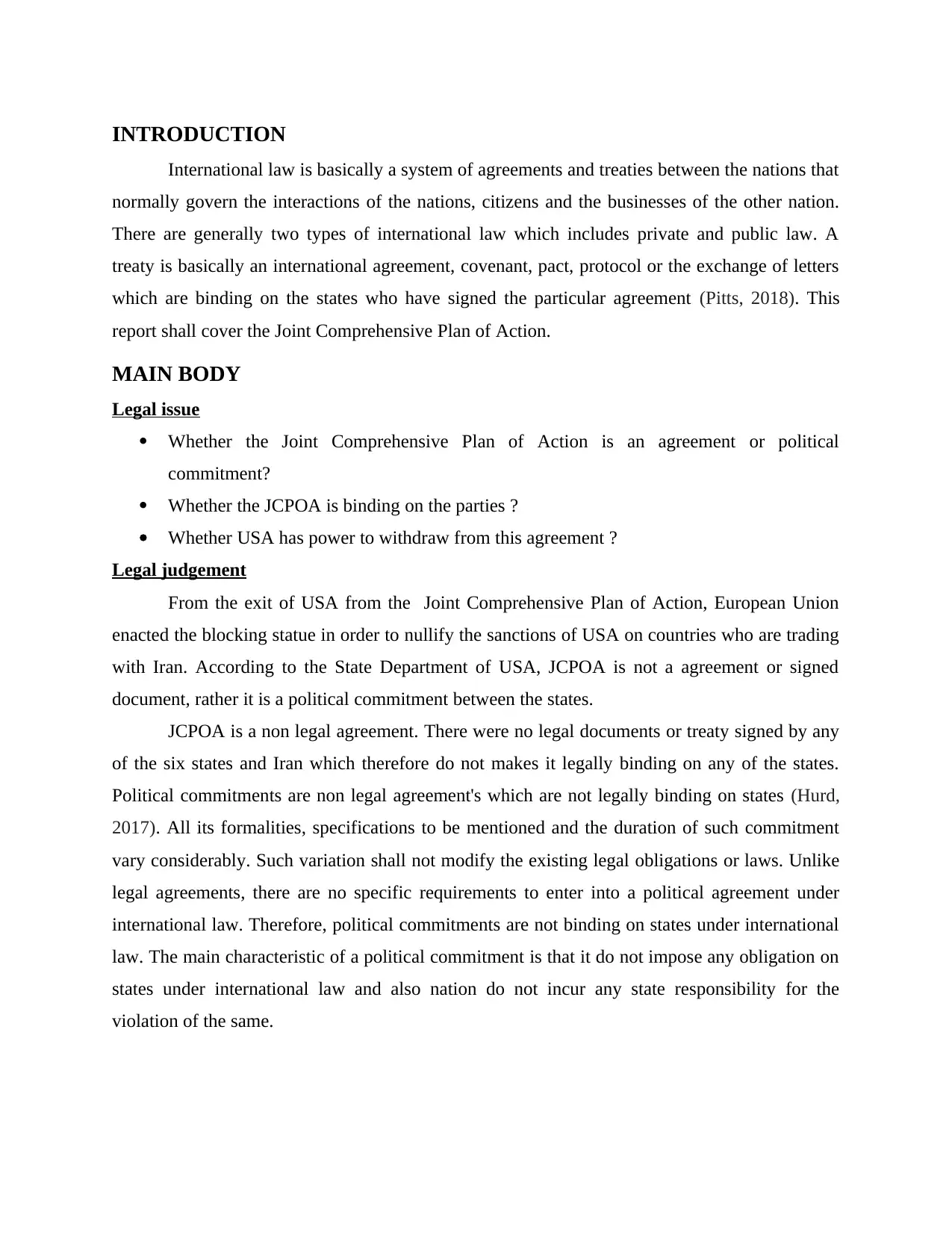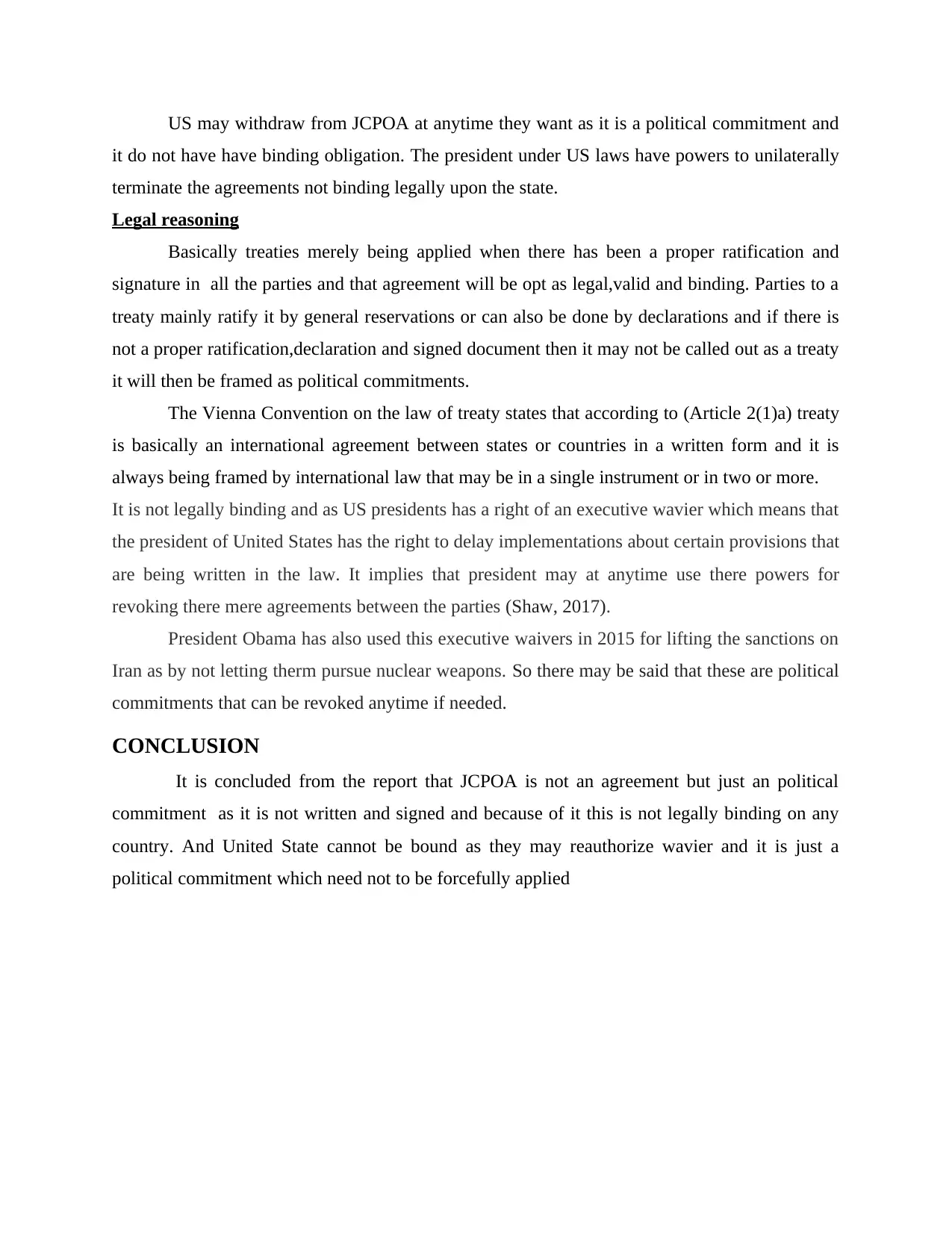Analysis of the JCPOA: A Legal Perspective on International Agreements
VerifiedAdded on 2023/01/03
|5
|773
|59
Report
AI Summary
This report provides a legal analysis of the Joint Comprehensive Plan of Action (JCPOA), examining whether it constitutes a legally binding agreement or a political commitment. It explores the legal issues arising from the US withdrawal, the powers of the US president in relation to such agreements, and the implications for international law. The report references relevant legal concepts such as treaties, the Vienna Convention on the law of treaties, and executive waivers. It concludes that the JCPOA is a political commitment, not a legally binding agreement, and therefore the US can withdraw. The analysis considers the roles of states, legal judgements, and legal reasoning to support its conclusions. The report also discusses the European Union's response to the US withdrawal and the concept of political commitments under international law. References to relevant books and journals are included to support the analysis.
1 out of 5












![[object Object]](/_next/static/media/star-bottom.7253800d.svg)